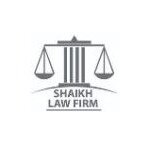Best Housing, Construction & Development Lawyers in Toronto
Share your needs with us, get contacted by law firms.
Free. Takes 2 min.
Free Guide to Hiring a Real Estate Lawyer
List of the best lawyers in Toronto, Canada
About Housing, Construction & Development Law in Toronto, Canada:
Housing, Construction & Development law in Toronto, Canada covers various legal aspects related to housing, building construction, and urban development. This area of law deals with issues such as property ownership, rental agreements, zoning regulations, building permits, and dispute resolution in the construction industry. Understanding the laws and regulations specific to Toronto is crucial when navigating these matters.
Why You May Need a Lawyer:
There are several situations where seeking legal help in Housing, Construction & Development may be necessary:
- Issues with landlords or tenants, such as lease disputes or eviction proceedings
- Contract disputes and delays in construction projects
- Building code violations and regulatory compliance
- Obtaining permits and navigating zoning regulations for construction or development projects
- Resolving disputes related to property ownership or boundaries
Local Laws Overview:
In Toronto, several local laws and regulations govern Housing, Construction & Development:
- Toronto Municipal Code: This code outlines the regulations related to property standards, zoning by-laws, and building permits.
- Residential Tenancies Act: Governs the rights and obligations of landlords and tenants in residential properties.
- Ontario Building Code: Sets out the standards and requirements for building construction, including plumbing, fire safety, and accessibility.
- Ontario New Home Warranties Plan Act: Provides warranty protection for newly built homes and regulates home builders.
Frequently Asked Questions:
1. Can a landlord increase the rent arbitrarily?
No, landlords in Toronto cannot increase rent arbitrarily. Rent increases are subject to the guidelines set by the Ontario government and are applicable to most residential rental units.
2. What should I do if my landlord refuses to make necessary repairs?
If your landlord refuses to make necessary repairs, you can file an application with the Landlord and Tenant Board and seek an order for the repairs or other appropriate remedies.
3. What permits do I need for home renovations in Toronto?
The permits required for home renovations in Toronto depend on the scope of the project. Minor renovations may not require permits, but major projects like structural changes or additions usually require building permits. It is best to consult with the local building department to determine the necessary permits.
4. What is the process for resolving construction contract disputes?
Resolving construction contract disputes typically involves negotiation, mediation, or arbitration. If these methods fail, litigation may be necessary. It is advisable to consult with a lawyer experienced in construction law to guide you through the dispute resolution process.
5. How can I know if a property is zoned for the intended use?
You can determine the zoning of a property in Toronto by reviewing the zoning by-laws available on the City of Toronto's website. If you have specific questions or concerns, consulting with a lawyer or contacting the city's zoning department can provide further guidance.
Additional Resources:
When seeking legal advice or information on Housing, Construction & Development in Toronto, the following resources may be helpful:
- City of Toronto - The official website of the City of Toronto provides information on local by-laws, permits, and regulations.
- Federation of Metro Tenants' Associations (FMTA) - A nonprofit organization that offers resources and support for tenants in Toronto.
- Ontario Bar Association (OBA) - The OBA's website provides access to legal resources, including a directory of lawyers specializing in housing, construction, and development law.
Next Steps:
If you are in need of legal assistance regarding Housing, Construction & Development in Toronto, it is recommended to take the following steps:
- Evaluate your specific legal issue or concern.
- Research and gather information relevant to your situation.
- Consider consulting with a lawyer specializing in Housing, Construction & Development law.
- Prepare any necessary documentation or evidence.
- Schedule a consultation with a lawyer to discuss your case and determine the best course of action.
Lawzana helps you find the best lawyers and law firms in Toronto through a curated and pre-screened list of qualified legal professionals. Our platform offers rankings and detailed profiles of attorneys and law firms, allowing you to compare based on practice areas, including Housing, Construction & Development, experience, and client feedback.
Each profile includes a description of the firm's areas of practice, client reviews, team members and partners, year of establishment, spoken languages, office locations, contact information, social media presence, and any published articles or resources. Most firms on our platform speak English and are experienced in both local and international legal matters.
Get a quote from top-rated law firms in Toronto, Canada — quickly, securely, and without unnecessary hassle.
Disclaimer:
The information provided on this page is for general informational purposes only and does not constitute legal advice. While we strive to ensure the accuracy and relevance of the content, legal information may change over time, and interpretations of the law can vary. You should always consult with a qualified legal professional for advice specific to your situation.
We disclaim all liability for actions taken or not taken based on the content of this page. If you believe any information is incorrect or outdated, please contact us, and we will review and update it where appropriate.















